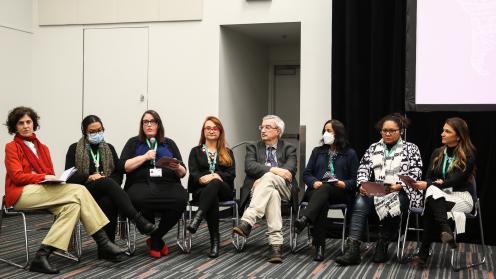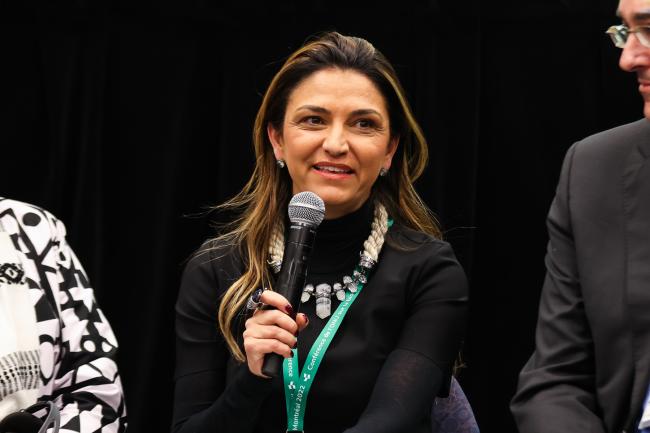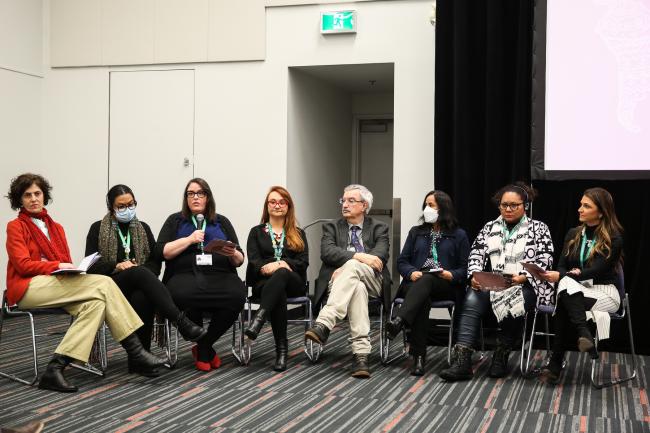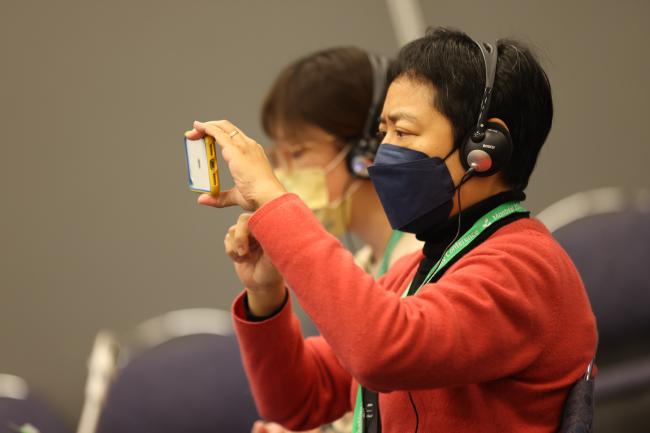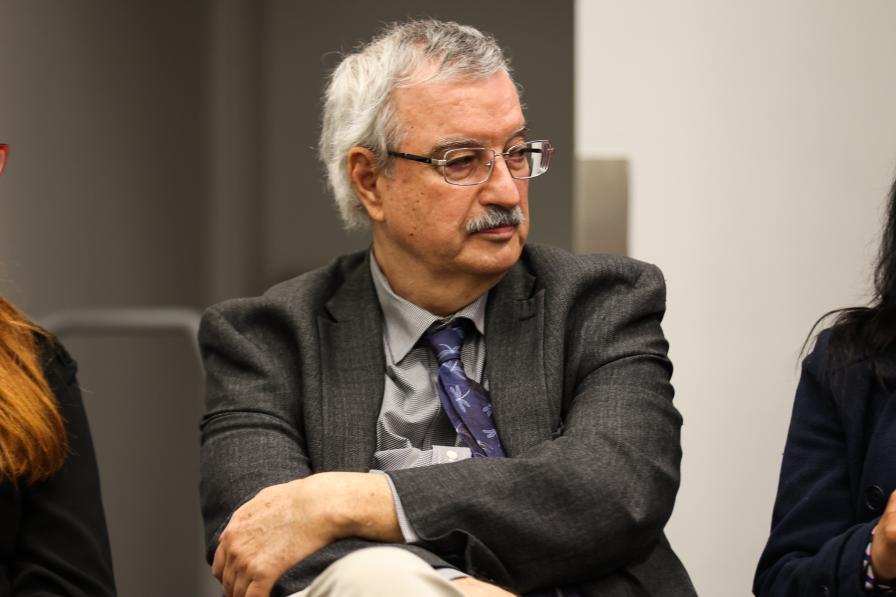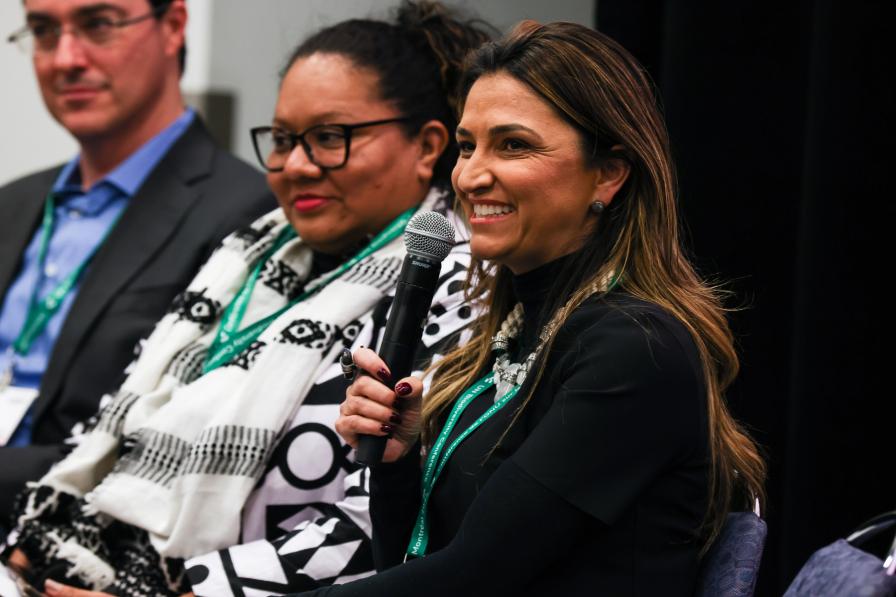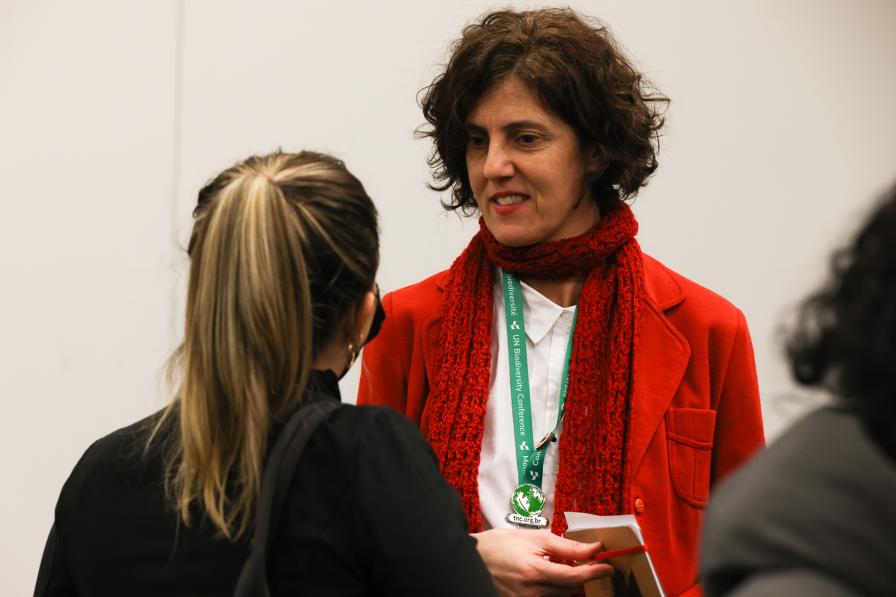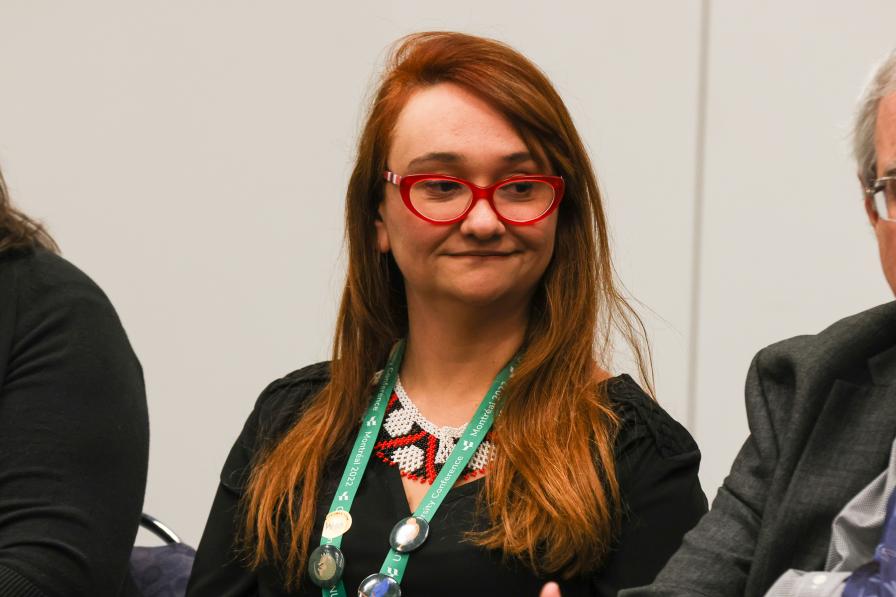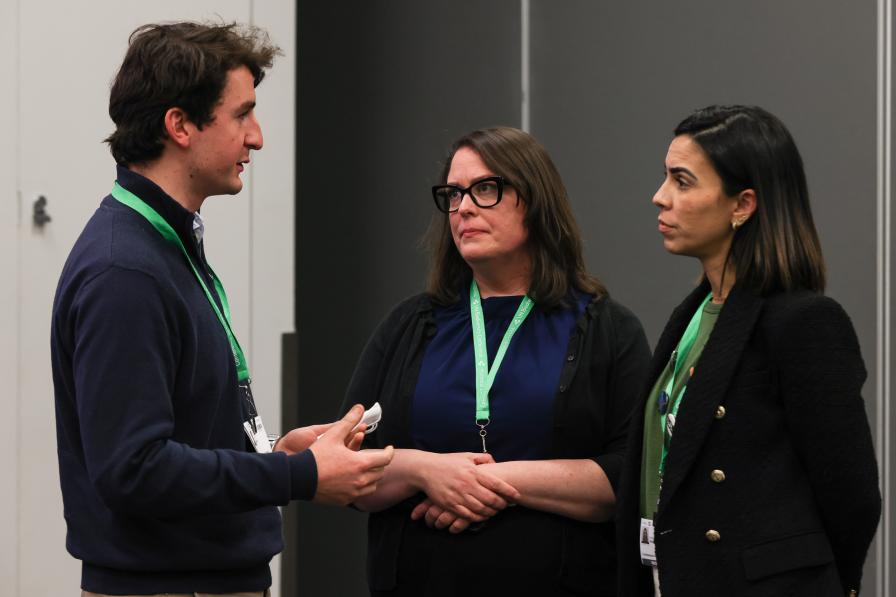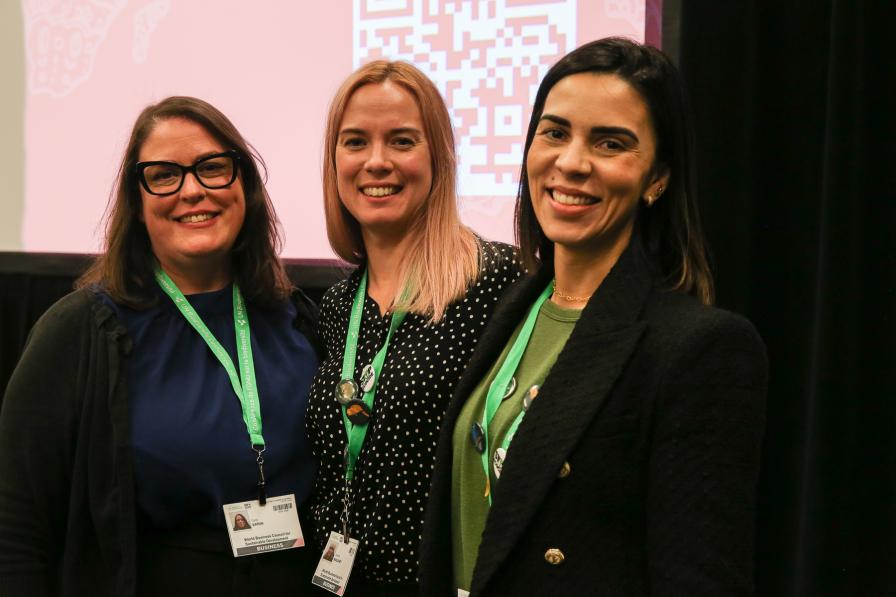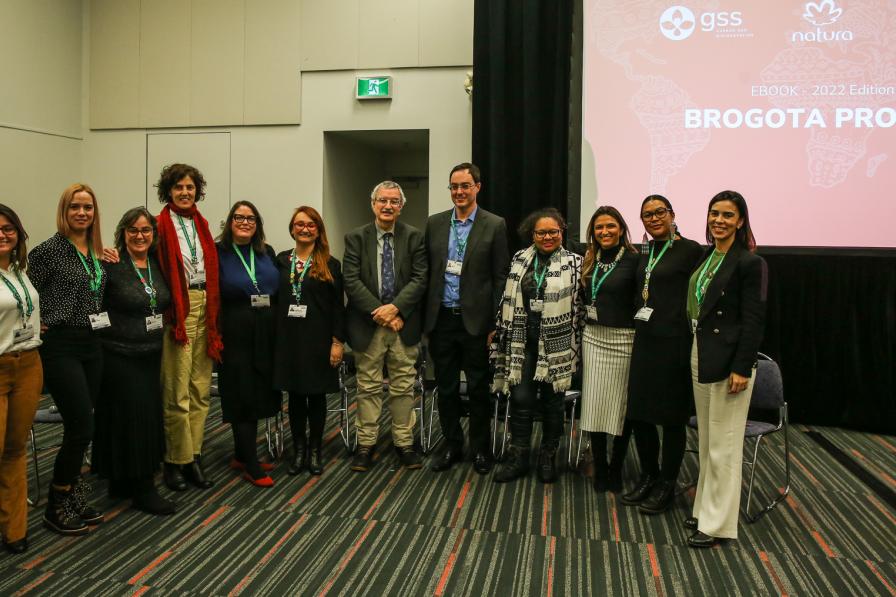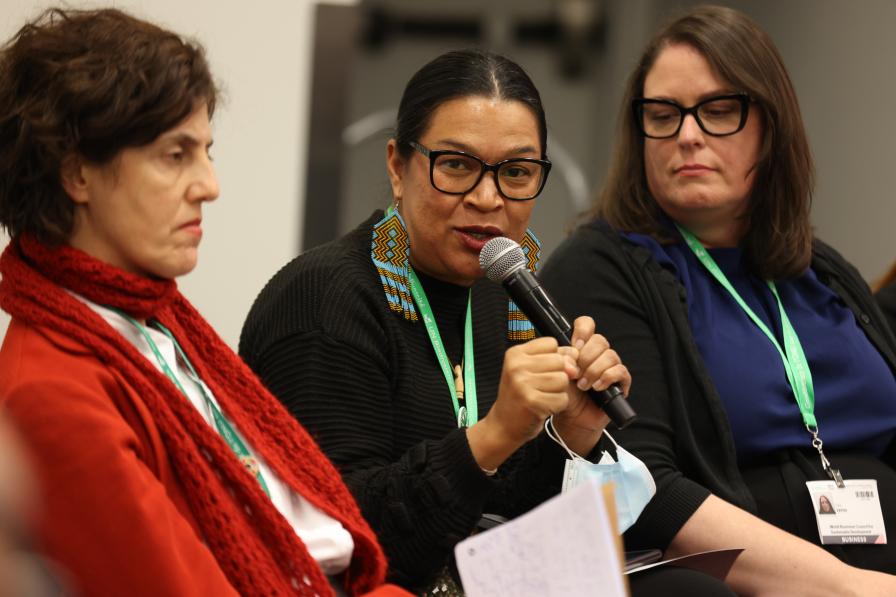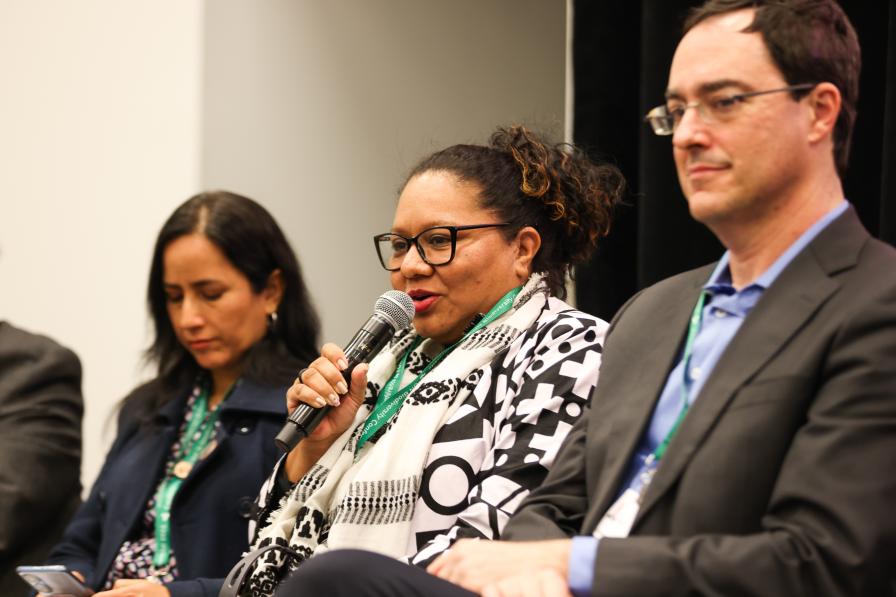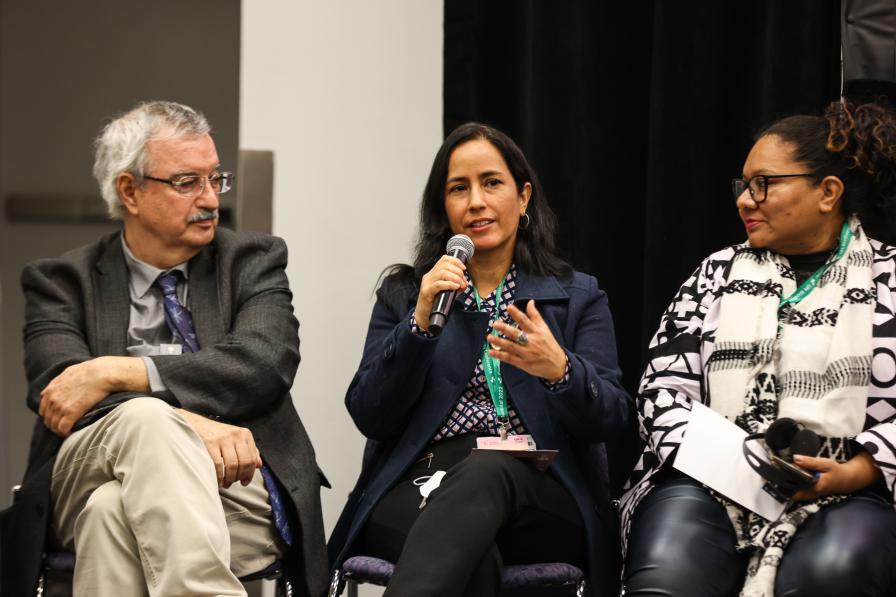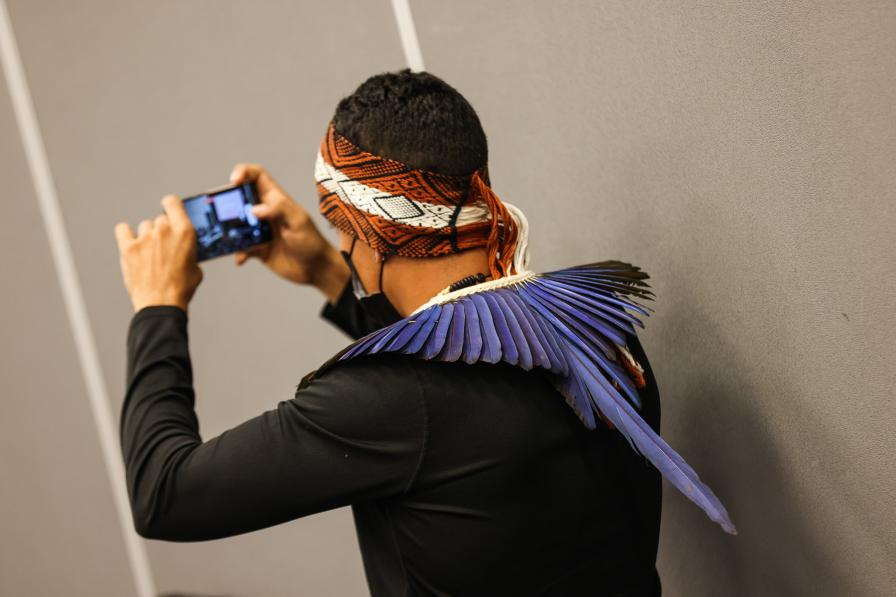About
This panel brought together representatives of the governments of Peru and Brazil to exchange experiences on the execution of their Access and Benefit Sharing (ABS) legislation.
In 2016, Project Brogota was launched at COP 13, in Cancun, Mexico, to examine access and benefit-Sharing (ABS) around the world, to guide the personal hygiene, perfumery, and cosmetics sectors, and assess the main impacts and the requirements for fulfilling the applicable ABS legislation.
Moderated by Francine Leal Franco, GSS Carbono e Bioinovação, this event brought together representatives of the governments of Peru and Brazil to exchange experiences on the execution of their ABS legislation. Leal Franco introduced a publication updating Brazilian legislation on access to genetic heritage, including laws and standards, resolutions, and technical guidelines, including in relation to the Nagoya Protocol on ABS.
Cara Eaton, Croda, said her company uses “smart science to improve lives,” with its Consumer Care business providing innovative and sustainable solutions to manufacturers of home, beauty, and personal care products by offering formulations tailored to consumer demands. She stressed Croda is committed to being “climate-, land-, and people-positive by 2030” by, inter alia: ensuring 75% of organic raw materials are bio-based; developing ingredients that improve human health and well-being; understanding impact or dependence of sites and ingredients on biodiversity; and identifying how positive change across supply chains improves operations and manufacturing, as well as nature and the lives of people. She described an “ingredient transparency” programme, aiming to track the sustainability of the company’ s ingredients.
Anna Viana, Natura, spoke on the Brogota Study comparing Brazilian law 13.123 on ABS to other countries’ legislation. She said the study showed the need for: harmonization of countries’ laws on access to genetic assets; multilateral processes for sharing benefits so monetary and non-monetary resources get to the stewards of the resources; and involvement of all stakeholders in proposing solutions.
Braulio Ferreira de Souza Dias, former Executive Secretary, CBD, noted that after over 100 years of treaties on specific species, developing countries in CBD negotiations pushed for conserving but also benefitted from biodiversity, with “revolutionary negotiations” on benefit-sharing, particularly with local and traditional communities as the guardians of biodiversity. He said “intact ecosystems” do not exist, but have been modified by human interaction, some without negative impacts. He cautioned that no one knows how best to conserve and use biodiversity, so the world must: learn by doing; share experiences; and harmonize concepts, criteria, and legislation. He noted half of Brazil’s native flora is shared with its neighbors, querying whether regional agreements can define who has the right to benefit from this flora.
Jessica María Amanzo Alcántara, Ministry of Environment, Peru, noted her country’s updated regulations on ABS will be continually improved, despite the difficulty of streamlining administrative procedures across the Andean community. She urged participants not to lose focus in efforts to preserve and generate a virtuous cycle of sustainable incentives for genetic resources, as they remain conserved in traditional territories and communities.
Claudia Sala de Pinho, Conselho dos Povos e Comunidades Tradicionais (CNPCT), said her voice echoes the 28 traditional communities of the Council on diverse and rich realities and worldviews on genetic resources. She noted traditional communities did not participate in developing Brazilian Law 13.123, providing for access to genetic resources and traditional knowledge and benefit-sharing for conservation and sustainable use of biodiversity, resulting in an asymmetry of voices. She stressed that the Law must make sense in the lives of people and defend of their rights. Noting the Law was enacted with this asymmetry, she urged dialogue to ensure it is “a living thing, expressing the realities of our own lives and in the context of our territories.”
Cristiane Julião Pankaruru, Articulação dos Povos e Organizações Indígenas, said Indigenous Peoples’ relationship with their spaces is fundamental. She said Brazil, unfortunately, creates but does not implement laws. She called for a legal framework integrating climate change and biodiversity conservation that protects people, environment, and quality of life. She said other pharmaceutical and cosmetic companies may follow Natura’s example of listening to the population and urged addressing bad practices through environmental crimes legislation.
David Canassa, Executive Director, Reservas Votorantim, described research in the forest of Legado das Águas in the Brazilian state of São Paulo, noting how research generates scientific public knowledge contributing to the conservation of biodiversity. He said the genetic resources of rare forest species have a high potential for technological development and shared that Reservas Votorantim is building a large database of genetic DNA from 57 native plants, with extracts potentially useful for the fragrance industry. He described the range of biodiversity in Legado das Águas, including the discovery of Octomeria estrellensis, an orchid species that had been declared extinct.
Priscila Matta, Natura, called for broadening the discussion on the exchange of experiences on biodiversity, saying companies must be engaged to broaden their understanding. She detailed the PlenaMata platform that offers real-time deforestation data, supports campaigning, and provides content on what is happening in the Amazon. She noted that ABS is fundamental to everything being discussed at COP 15, as a paramount tool for usage of biodiversity, but lamented that she heard little about it in this roundtable.
Franco thanked everyone and closed the event, inviting participants to continue discussing and developing ABS procedures worldwide.
Organizers: GSS
Contact: Mariana Barreto Granato, GSS Carbono e Bioinovação mariana@gss.eco
For more information: https://www.cbd.int/side-events/4819
Written and edited by Tallash Kantai, Vijay Kolinjivadi, PhD, and Deborah Davenport, PhD.
All ENB photos are free to use with attribution. For this event, please use: Photo by IISD/ENB | Natalia Mroz
To receive free coverage of global environmental events delivered to your inbox, subscribe to the ENB Update newsletter.
